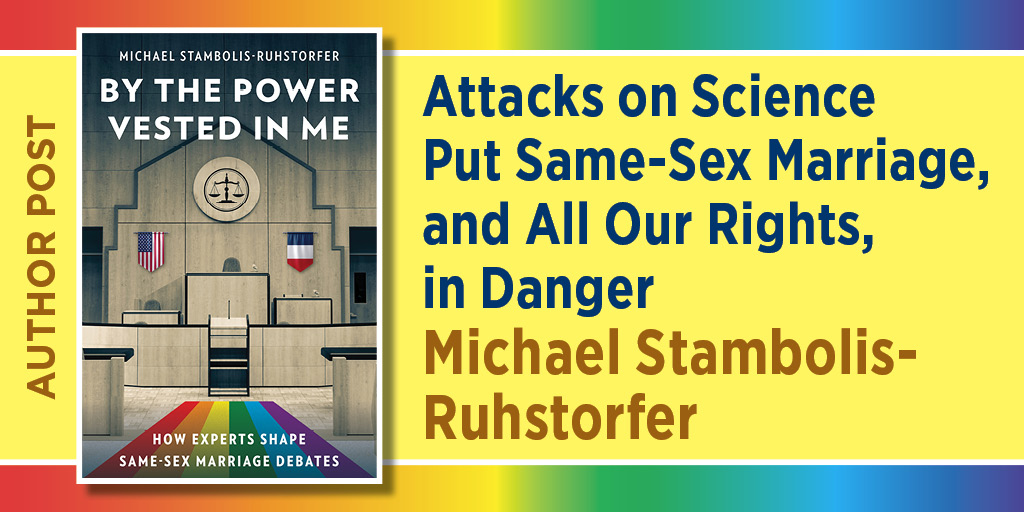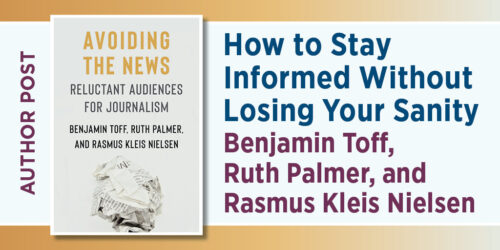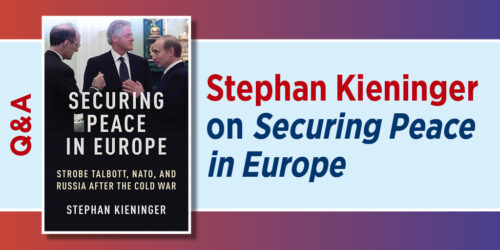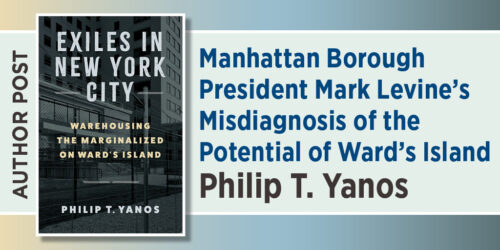Attacks on Science Put Same-Sex Marriage, and All Our Rights, in Danger Michael Stambolis-Ruhstorfer
Michael Stambolis-Ruhstorfer

Ten years ago, just before the end of Pride Month on June 26, 2015, the United States Supreme Court issued its much-anticipated ruling in the case Obergefell v. Hodges. In a razor-thin five-to-four ruling—a result that would be unlikely in today’s court, where conservative justices hold six of the nine seats—the majority recognized that, regardless of their sex, couples have a constitutional right to marry.
On that day, the United States joined the ranks of sixteen other countries, including France, Argentina, and South Africa, that had already legalized same-sex marriage. The ruling built on hours of testimony in trial courts from academics and professionals who stated under oath that gays and lesbians are good parents, that legalizing their relationships would not cause social harms, and that peer-reviewed research supported the arguments of same-sex marriage supporters.
It has been a decade since that momentous decision, and although this anniversary is a cause for joy for those who won the long and bitter battle over same-sex marriage, the political climate has shifted dramatically.
While people who defend so-called traditional family values may have lost their fight against the legalization of same-sex marriage, they and their allies have made impressive strides on other issues. Abortion is now once again banned in parts of the United States. Efforts to impose a nationwide ban through legal strategies, such as enshrining “fetal personhood” into law, are gaining ground. Anti-abortion attorneys and judges have mobilized studies, since retracted, to claim that the FDA-approved drug mifepristone, used in medication abortion, should be taken off the market.
Whether or not we think experts should have the power to shape whether or not governments recognize people’s human rights, the fact of the matter is that they do.
Transgender people of all ages are under assault. Anti-trans judges, lawmakers, and their supporters justify their drive to eliminate trans people from public life behind concern about women’s rights, fairness in sports, and children’s health. They often wield research, some of which is highly contested, to make their opposition appear scientifically founded—though that sometimes backfires—rather than motivated by hate. Moreover, many states have introduced legislation to restrict how gender and sexuality are taught in schools and to restrict the speech of LGBTQ teachers and students.
Even same-sex marriage itself is now at risk in the United States. After Obergefell, the Supreme Court began whittling away at the legitimacy of same-sex marriage by pitting the newly enshrined rights of gay and lesbian couples against the religious beliefs of people who opposed them. In a series of Supreme Court cases, the justices decided that businesses may refuse their services to same-sex couples. The cases involved a baker who declined to make a wedding cake when he discovered the clients were gay and a web designer who was worried she might one day have to create a wedding website for same-sex couples. These business owners’ discrimination, the court stated, was a constitutionally protected form of free speech and religious liberty. The decision will embolden other same-sex marriage opponents to make similar claims.
More alarmingly, the logic underpinning the majority’s decision in the 2022 case, Dobbs v. Jackson Women’s Health Organization, which overturned Roe v. Wade, sets the court up to one day overturn Obergefell. The decision is grounded in the idea that the court should never have recognized a constitutional right to abortion in the first place. Justice Samuel Alito, the author of the majority opinion, argued that such a right was neither embedded in the country’s history nor in the meaning and words of the Fourteenth Amendment. By extension, the justices could use the same reasoning—that a broad right to personal dignity and autonomy recognized by previous court majorities does not exist—to repeal constitutional protections of personal liberty it once upheld. If the Supreme Court repeals those protections, states would be able to reinstate bans on birth control, sodomy, and same-sex marriage, among other rights.
Experts produce a specific kind of currency, which I call expert capital, that lawmakers, judges, lawyers, journalists, activists, and other political actors covet.
As the horizon darkens for women and LGBTQ people, it behooves us to pay attention to a crucial, but often overlooked, group of people who play an important part in the global battle over same-sex marriage: experts. Because lawyers, judges, and lawmakers have sought experts’ opinions as they decided whether to treat queer families like their straight peers, experts have held surprising sway over these debates. Whether or not we think experts should have the power to shape whether or not governments recognize people’s human rights, the fact of the matter is that they do. That influence makes them a target.
At a time of authoritarian attacks on science and universities, as well as soaring public distrust in experts, understanding the contested political role of expertise is important. In my book, By the Power Vested in Me: How Experts Shape Same-Sex Marriage Debates, I explain how decision-makers in the United States and France relied on experts to legalize same-sex marriage (nationally in 2015 and 2013 respectively) and what that says about how, when, and why certain people—but not others—obtain this unique authority to influence democratic politics.
The decades-long fight over queer family rights illustrates a common feature of political debate. If a political actor wants to be taken seriously and convince others, they will often argue that those who know best—the experts—agree with them. They will also claim that the expertise of their opponents is somehow flawed. This is especially true if their demand goes against the grain, requires sacrifice, or brings commonly held assumptions into question. Getting people to agree to support Covid restrictions, impose limits on carbon emissions, or support their gay neighbor’s right to marry are all good examples of political controversies in which each side tries to leverage the legitimacy of experts to outmaneuver their rivals.
Experts produce a specific kind of currency, which I call expert capital, that lawmakers, judges, lawyers, journalists, activists, and other political actors covet. They use the credibility and aura of authority this special capital gives them to advance their particular agendas when lobbying, crafting law, shaping public opinion, and much more.
The decades-long fight over queer family rights illustrates a common feature of political debate. If a political actor wants to be taken seriously and convince others, they will often argue that those who know best—the experts—agree with them.
It might seem like expert capital would be universally portable from one context to another. After all, if judges in the United States are convinced by social science research finding that children raised by same-sex couples fare just as well as their peers raised by different-sex couples, surely lawmakers in France would be persuaded by the same evidence. As it turns out, they’re not.
Expert capital is, in fact, highly dependent on context. Its value, availability, and form depend on the context and the issue at hand. Indeed, despite dealing with the same legal questions, decision-makers in the United States and France drew on strikingly different kinds of experts and expertise. For example, while economists were ubiquitous in the United States, they were absent in France. And while psychoanalysts and philosophers were frequently called to testify before French lawmakers, they were never invited to hearings in the United States.
These differences, which I explain in the book, are partly related to the venue where experts are heard. In the United States, peer-reviewed social science is decisive in courts, and was a key avenue of same-sex marriage legalization. This type of research can pass the high threshold information is required to meet in order to count as evidence in US courts. Groups opposed to same-sex marriage understood this, and so specifically crafted a study to suit their legal argument—though it was ultimately described by one judge as “junk science.” By contrast, in legislatures, where French debates were concentrated, political dynamics, storytelling, and impressive reputations matter more than scientific rigor.
Expert capital is also context-dependent partly because of how it is produced. Academic and professional fields in which conservative and progressive experts compete for funding and prestige are not structured in the same way in France and the United States. For example, anti-same-sex marriage experts in France have historically wielded more power in key disciplines, such as law and anthropology, relative to their peers in the United States—although that situation is rapidly changing in the current political climate.
Whether we like it or not, without them, our civil rights are in danger.
Recognizing that expertise is a highly sought after resource whose availability and value depends on local context is useful. It explains the lengths to which political actors will go in order to cultivate the expert capital they need and to undermine expert capital they see as threatening their cause. As mentioned earlier, we see these dynamics playing out today in struggles over both trans rights and abortion, with advocates on both sides investing in procuring and producing expertise to sway decision-makers and the public. Struggles over expert capital are also clearly at play, as other scholars have pointed out, in a wide variety of contentious political debates, from climate change and vaccines to autism and police violence.
On this ten-year anniversary of Obergefell, political clashes over expert capital are as intense as ever—and they are taking a disturbing turn. Under the direction of authoritarians across the globe, including Donald Trump, offensives against scientific knowledge production have accelerated. These authoritarian attacks destroy public databases, fire researchers, eliminate academic freedom, drastically cut funding, and generally hamper the ability of scholars to produce high-quality information. All of this damage in turn advances multiple authoritarian goals: it reduces critical scrutiny of authoritarian activities, cudgels expertise in the public interest, and empowers authoritarian allies to fill the gap with their own ideologically oriented “expertise.”
Although these authoritarians purport to criticize a supposedly elite and out of touch class of scientists, we would be wrong to think that they don’t care about the power of experts at all. Indeed, even as they seek to ban vaccine mandates, eliminate medication abortion, hamstring national commitments to reduce carbon emissions, and prohibit doctors from administering vital treatment to their trans patients, they justify themselves with “expertise.” But they do so cynically, upending the rules of the game so that independent science is increasingly difficult to produce and good-faith decision-makers, journalists, and citizens are therefore less able to evaluate the quality of the information offered by authoritarian “experts.”
As we consider the legacy of the Obergefell decision, let’s remember the experts who helped make it happen. Whether we like it or not, without them, our civil rights are in danger.
Michael Stambolis-Ruhstorfer is a sociologist and associate professor of American studies at the University of Toulouse–Jean Jaurès and junior member of the Institut Universitaire de France, and the author of By the Power Vested in Me: How Experts Shape Same-Sex Marriage Debates.
Categories:Author-Editor Post/Op-EdGender StudiesLGBTQIA studiesPride MonthSociology
Tags:abortion rightsacademic freedomanti-science politicsBy the Power Vested in Medemocracydemocratic institutionsDobbs decisionDobbs v. Jacksonexpert capitalexpert testimonylegal advocacyLGBTQ rightsMichael Stambolis-RuhstorferObergefell v. HodgesPride Month 2025public policysame-sex marriagescience and politicsSociologyStay Informedtrans rights





